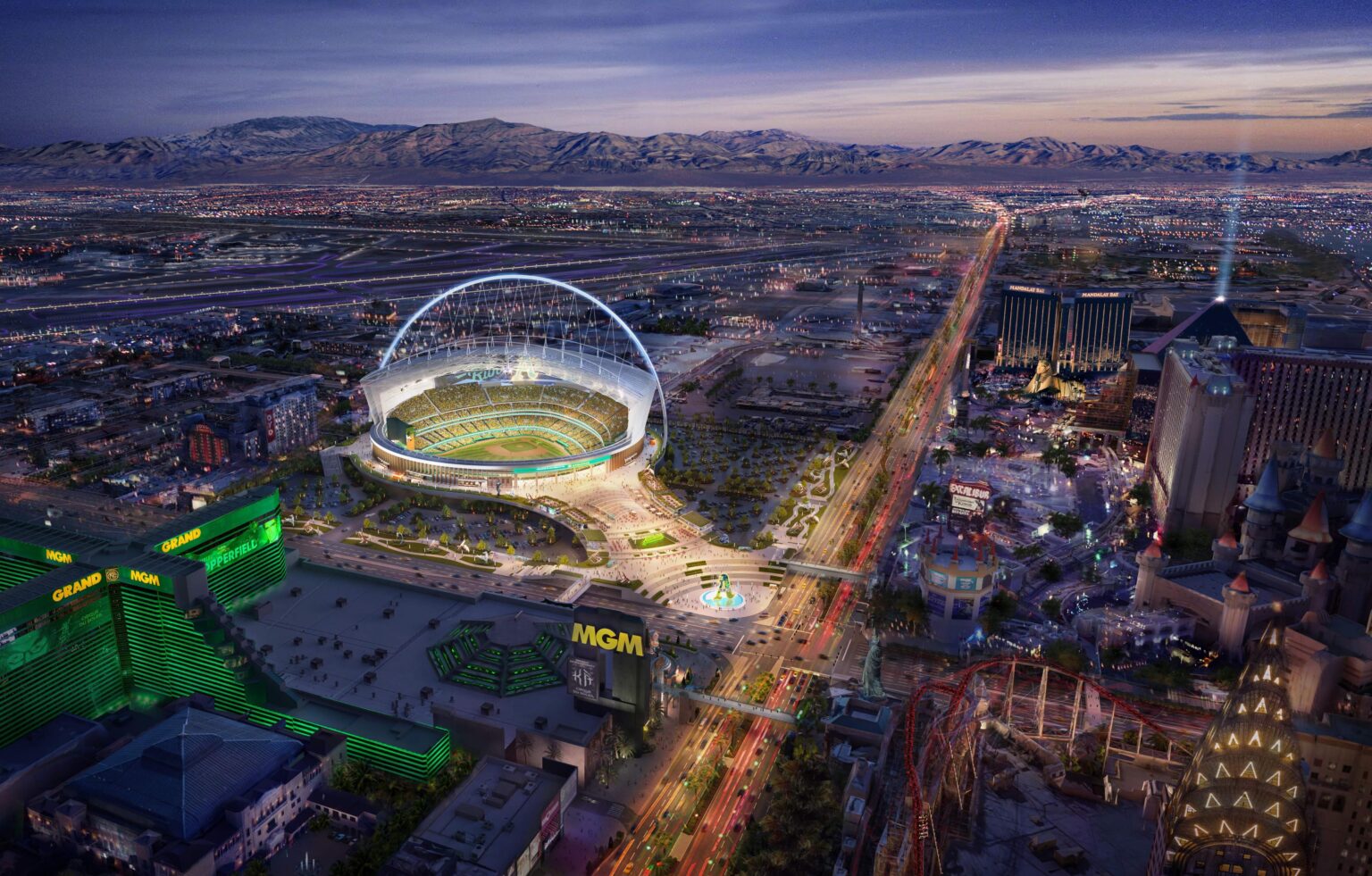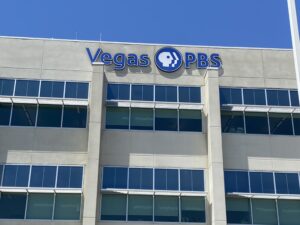4:19
News Story
Not quite a home run, but Oakland A’s still manage to score $380m Vegas deal
Wednesday brought to an end an eight-day special session that approved $380 million in public assistance for a proposed $1.5 billion, 30,000-seat, 9-acre baseball stadium for the Oakland A’s on the Las Vegas Strip. Pending a signature from Gov. Joe Lombardo, the Southern Nevada Tourism Innovation Act, as SB1 was dubbed by proponents, marks the second publicly funded pro sports venue approved by state lawmakers in less than a decade.
Legislators in 2016 approved a $750 million public subsidy for what would become Allegiant Stadium, which welcomed the NFL’s Raiders when they looked to flee Oakland. The A’s ballpark deal saw less support from legislators than its predecessor, but luckily for the A’s it only needed to pass with a simple majority and behind-closed-doors negotiations leading to significant amendments adopted in both chambers whipped enough votes in the A’s favor.
The Senate voted 13-8 on Tuesday, and the Assembly followed with a 25-15 vote on Wednesday. Assemblywomen Daniele Monroe-Moreno and Sabra Newby were excused from the vote, though the former made it clear in hearings she opposed the proposal.
The A’s after the final vote released a brief statement thanking the Legislature: “We are especially grateful for the legislators’ time and dedication to shepherding this bill through the process, including the special session. We look forward to Governor Lombardo’s signature as our next step.”
The governor issued no public statement after the conclusion of the special session, which according to Assembly Speaker Steve Yeager he convened against the advice of legislative leaders. Still, the first-term governor is expected to sign the bill.
The MLB will have to approve the A’s relocation, which is not expected to be an issue. It has been previously reported the league may waive the relocation fee because the team was able to secure public financing. The A’s will also have to secure their portion of the stadium financing, which their lobbyists have said will be not less than $1.1 billion. Few details of their private financing deal are known.
If everything falls into place, construction on the ballpark could begin sometime next year and be completed in time for the Las Vegas A’s to play in the spring of 2028.
The A’s will also have to figure out where to play after their current contract with the Coliseum ends next year.
Some of the finer details…
The $380 million public commitment includes up to $180 million in transferable tax credits issued by the state, $120 million in Clark County-issued bonds, and a $25 million credit from the county toward related infrastructure or development costs.
Transferable tax credits, which were described by a state fiscal analyst earlier this year as “negative revenue” for the state, are awarded to businesses through tax incentive programs or sweetheart deals like SB1 and then sold by said business to other businesses, which can use them for their own tax liabilities.
A sports and entertainment improvement district will be established at the site of the ballpark and taxes generated within its boundaries will support the bonds.
The Las Vegas Stadium Authority will own and provide oversight to the stadium, similar to what it already does with Allegiant Stadium. The makeup of the authority will be adjusted slightly with the passage of SB1.
Jeremy Aguero, who pitched the Raiders stadium and is now pitching the A’s, told lawmakers the ballpark will bring 14,639 one-time construction jobs that total $898 million in wages and salaries.
Annual employment at the stadium once constructed is projected at 8,010 full or part-time jobs. Those would total $437 million in wages.
The A’s will have a 30-year non-relocation agreement, and have to sign a community benefits agreement that commits them to establishing certain diversity hiring requirements and charitable or community endeavors, like donating tickets to nonprofits or supporting little leagues in underserved neighborhoods. The community benefits agreement portion of SB1 includes a specific provision that the team donate $500,000 annually during the construction phase and then a minimum of $2 million per calendar year once the stadium is open.
SB1 also resurrected two bills from this year’s regular session that were backed by Democrats and vetoed by Lombardo. One requires large companies receiving tax abatements from the Governor’s Office of Economic Development to offer paid family medical leave. The other requires prevailing wage on monorail projects. Those parts of the bill do not directly relate to the proposed baseball stadium but appear to have been added as concessions to help secure support from stadium skeptics.
Our stories may be republished online or in print under Creative Commons license CC BY-NC-ND 4.0. We ask that you edit only for style or to shorten, provide proper attribution and link to our website. AP and Getty images may not be republished. Please see our republishing guidelines for use of any other photos and graphics.




